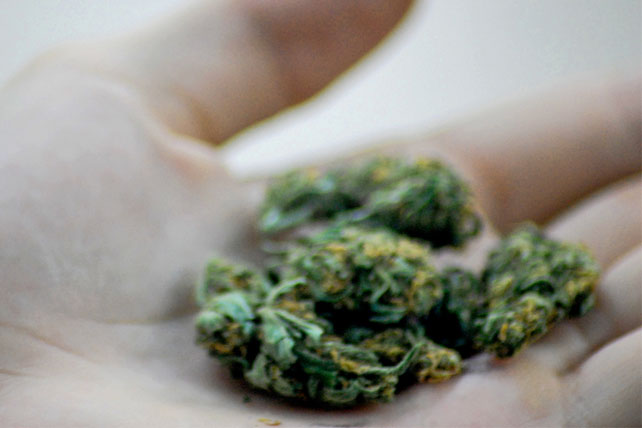An Australian politician has called for the decriminalisation of drugs in the Northern Territory, which has already decriminalised cannabis, after witnessing the successes of Portugal’s drug policy.
Jeff Collins, the Assistant Minister for Police, Fire and Emergency Services in Australia's Northern Territory (NT), has called for an end to the criminalisation of people who possess drugs for personal use. He said that it was important to treat people who use drugs as "having a health issue, not necessarily a criminal issue", according to a statement reported by ABC.
Collins’ remarks came as he completed a trip to Portugal. During Collins' visit, he met with legal and health professionals, discussed the implementation of the country’s drug strategy, and observed the operation of treatment facilities and drug education services, with the hope that such experiences could inform his policy approach to drug use in the NT.
The choice of Portugal, which decriminalised the personal possession and use of all drugs in 2001, was no coincidence. Since 2001, Portugal has seen a sharp drop in HIV diagnoses attributed to drug injecting, and drug-related deaths have decreased significantly to one of the lowest rates in the EU. Based on recent data, the drug-induced mortality rate among adults is just under 6 per million in Portugal, considerably lower than the EU average of 20.3 per million, and staggeringly lower than Australia’s 88 per million.

Graph based on most recent available data
“You've got roughly the same number of people using drugs, but you have more people in treatment [in Portugal], so if that's an end result of the system – getting them into treatment as opposed to getting them into incarceration – then, for me, that's a successful program,” Collins described.
While the possession and use of most drugs is criminalised in the NT, the territory was among the world’s first jurisdictions to decriminalise the personal possession of cannabis – over two decades ago, in 1996. Since then, someone found in possession of under 50 grams of cannabis faces a fine of up to AU$200 (£123; US$160) instead of criminal prosecution.
Data suggests that this legislative change has been a success.
“Rates of cannabis consumption in [the NT] have fallen significantly since 1998 – two years after the introduction of decriminalisation – with reported use in that year of 36.5 per cent of the population, meaning that prevalence has more than halved in the last 17 years, supporting the evidence that the ending of criminal sanctions does not lead to an increase in use,” notes a 2016 report, A Quiet Revolution: Drug Decriminalisation Across the Globe, written by Release, the UK’s centre of expertise on drugs and drug law.
Although Collins did not specify which drugs he supported the decriminalisation of, the territory – and the country – has experienced a rise in methamphetamine use in recent years. According to the Australian Institute of Health and Welfare (AIHW), the rate of people reporting past-year methamphetamine use remained steadily above 2 per cent (or one in 50 adults) between 2010 and 2013. During the same period, the AIHW reports, there was “an increase in the reported frequency of methamphetamine use—daily or weekly use rose from 9.3% to 16%”.
An end to the criminalisation of drug use and personal possession could offer a multitude of potential benefits for people who use drugs, including improved protection of civil liberties and reduced stigma – which in turn can encourage people to seek help for problematic use, as has occurred in Portugal. However, more than decriminalisation alone would be needed to off-set the potential harms of using certain illicit substances, such as methamphetamine. Importantly, a comprehensive harm reduction package – including effective needle-syringe programmes that provide sterile injecting equipment, and safer drug consumption rooms – would reduce health risks.
Jeff Collins is one of many political figures who have been vocally in favour of drug decriminalisation this year – alongside Jeff Kennett, the former premier of Victoria, and Bob Carr, the former premier of New South Wales. However, it is unclear if progressive drug policy reform can take place in the current political climate in the NT, or in Australia more broadly; the national government is set to trial a scheme under which welfare recipients will be denied payments if they fail drug tests – a punitive controversial move that has drawn criticism from the medical community for the lack of evidence supporting it.


